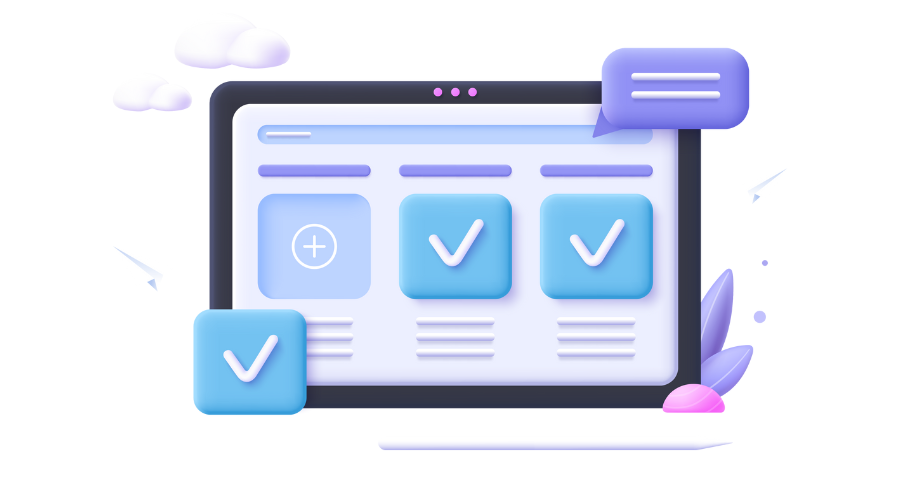Is your mental health affected by adapting to this new mode of operation? If yes, you must know that you are not alone. Find out why mental health checks in the workplace are crucial in this era.
The COVID-19 pandemic upended the way businesses ran their operations in early 2020. Businesses had to quickly adapt to work-from-home (WFH) business models where employees had to perform their tasks without physically coming to work.
While this may have been a drastic change for most, almost two years of enduring the pandemic has made most of us very proficient at working from home. At the same time, after two years of dealing with this hybrid work model and its pros and cons, there’s a fair bit of debate about the benefits and the downsides of this model.
One of the most significant downsides has been the mental health challenges due to people working in isolation for extended periods of time.
A poll conducted by the Kaiser Family Foundation in the USA stated that about 53% of Americans reported having mental health concerns after switching to a work-from-home model. Of course, while these numbers may not apply in all countries, they certainly give us a broad idea of the working trends.
Let us see how a WFH model affects your mental health and why businesses should prioritize regular mental health checks.
Downsides of working from home
While it may seem like the perfect working opportunity to take your 9 am meetings from the comfort of your bed, it is not always the best for your mental health. Here’s why!
Feelings of isolation
Remember when you took a break every hour or two to chat with your office friends or go out for a small tea break? These interactions may not have seemed like a big deal then. Yet, they are significantly more important than you can imagine.
Micro-interactions in the workplace keep you from feeling isolated and help you create social bonds. Unfortunately, working from home takes away this critical – and highly enjoyable – aspect of your work experience. Soon, you feel isolated and left out.
This isolation can turn into chronic loneliness. People who tend to feel lonely can suffer from many other mental health issues like anxiety and chronic depression. Being able to work from your house may seem very productive initially. However, over time, being cooped up at home can have significant downsides too.
Burnout
Are you someone who enjoys spending your time doing productive things? If yes, work-from-home opportunities would have made you more efficient than ever. The WFH mode initially helps you optimize your time and work more than you might ever have done in a traditional office space.
However, continuous working can put you in an endless rut, also known as burnout. Burnout is when you are too stressed by your workload and have already maximized your productivity and efficiency. After you reach this point, you might find yourself at a terrible low where you cannot work at the efficiency levels you previously worked at.
Burnouts can be avoided even though they seem ubiquitous in WFH situations. It has been observed that in a WFH model, people tend to work long hours without taking any breaks. Taking breaks is an essential part of efficient working. People can prevent burnout by just making it a point to take breaks every few hours (maybe by putting it on their calendars!).
Virtual meetings – or Zoom – Fatigue!
During the pandemic, usage of web meeting platforms such as Zoom has soared (and in some cases, so have their stock prices!). However, the convenience of using them has led to overuse and extended office hours. In a traditional office environment, scheduling back-to-back meetings for employees is not common – and not really necessary. Smaller tasks can be accomplished in informal settings – such as a conversation during a lunch or coffee break. This has not been possible when working from home.
Throughout the pandemic – and even earlier in distributed team settings- employees have spent hours sitting through meetings that often required redundant updates that could easily have been emailed! Many employees have reported feeling lethargic and fatigued after attending virtual meetings all day.
Conflicts
It has also been noticed that work conflicts exponentially increase when the only form of communication employees have are virtual meetings. As a result, people find it very difficult to express themselves, making it harder to communicate or get their point across.
It is easy to fall prey to office politics and find yourself in a frustrating situation. Working from home makes it even more challenging to solve these issues! Conflict resolution has been a part of every healthy organizational ecosystem.
The classic methods to resolve issues between co-workers generally work well in traditional working settings. Unfortunately, resolving conflicts between people working from home is much harder – and no clear methods exist.
To navigate such issues in the hybrid work model, it is essential to train managers and HR representatives adequately.
So, what next?
When the line between your working and living space gets blurry, you can end up hating the things you love to do the most. Many employees across various industries have reported feeling more stressed once they switched to a WFH model.
Employees feeling work-related stress also report reduced efficiency, affecting the company’s overall productivity. Therefore, to ensure overall business and employee health, management needs to allot time and resources to the mental well-being of their employees.
Some of the best-run and largest enterprises in the world, such as Google, Microsoft, JPMorgan, among other leading companies have switched to a permanent WFH model. They are leading the industry in this aspect while still making sure their employees and their wellness is a number one priority. A holistic approach is the best way to lead your company into the future and the best way to adapt to the ‘New Normal’ we call WFH!










